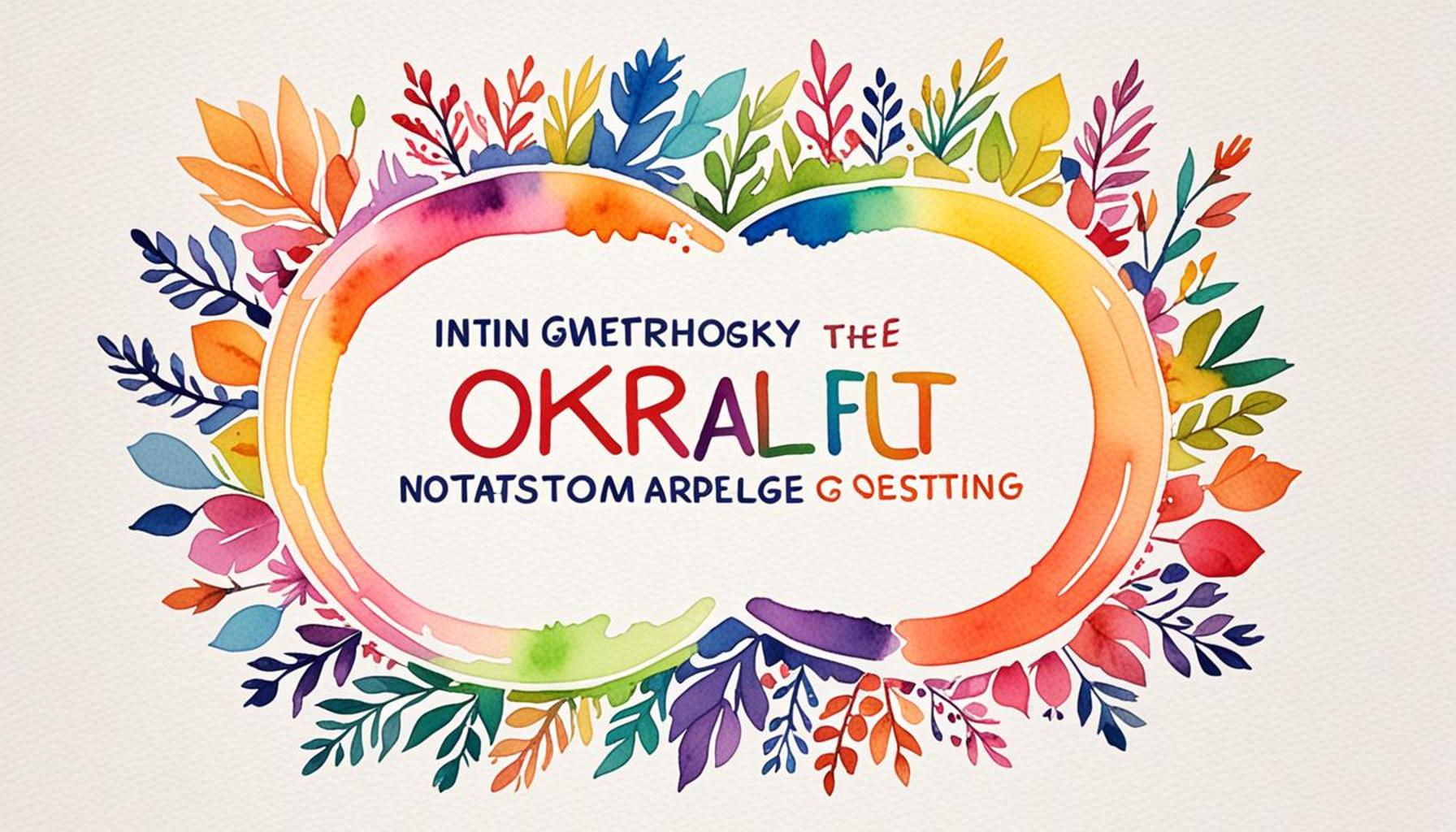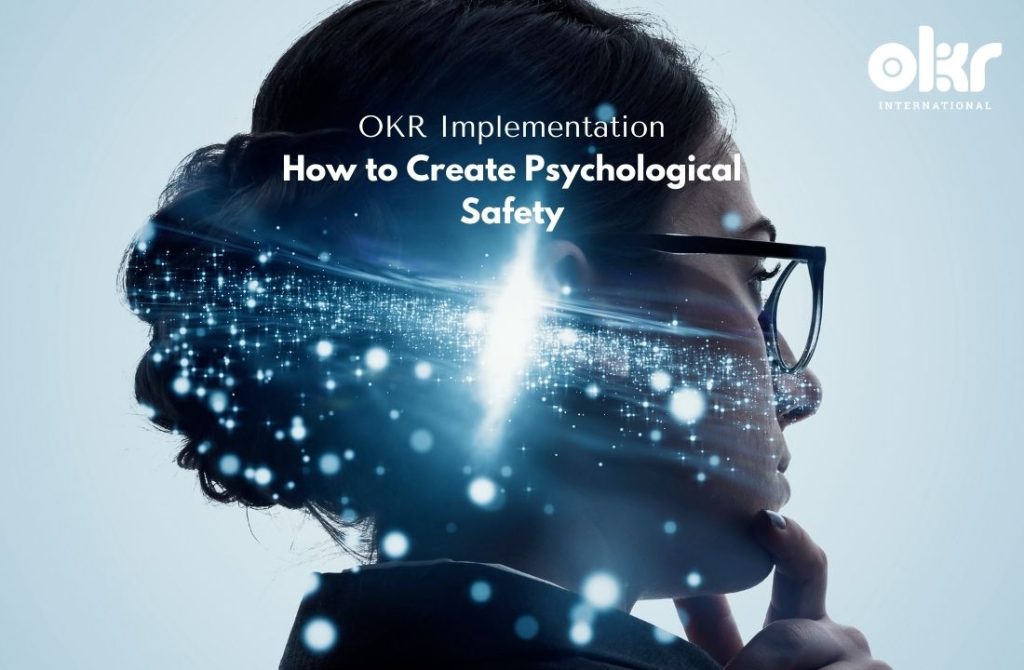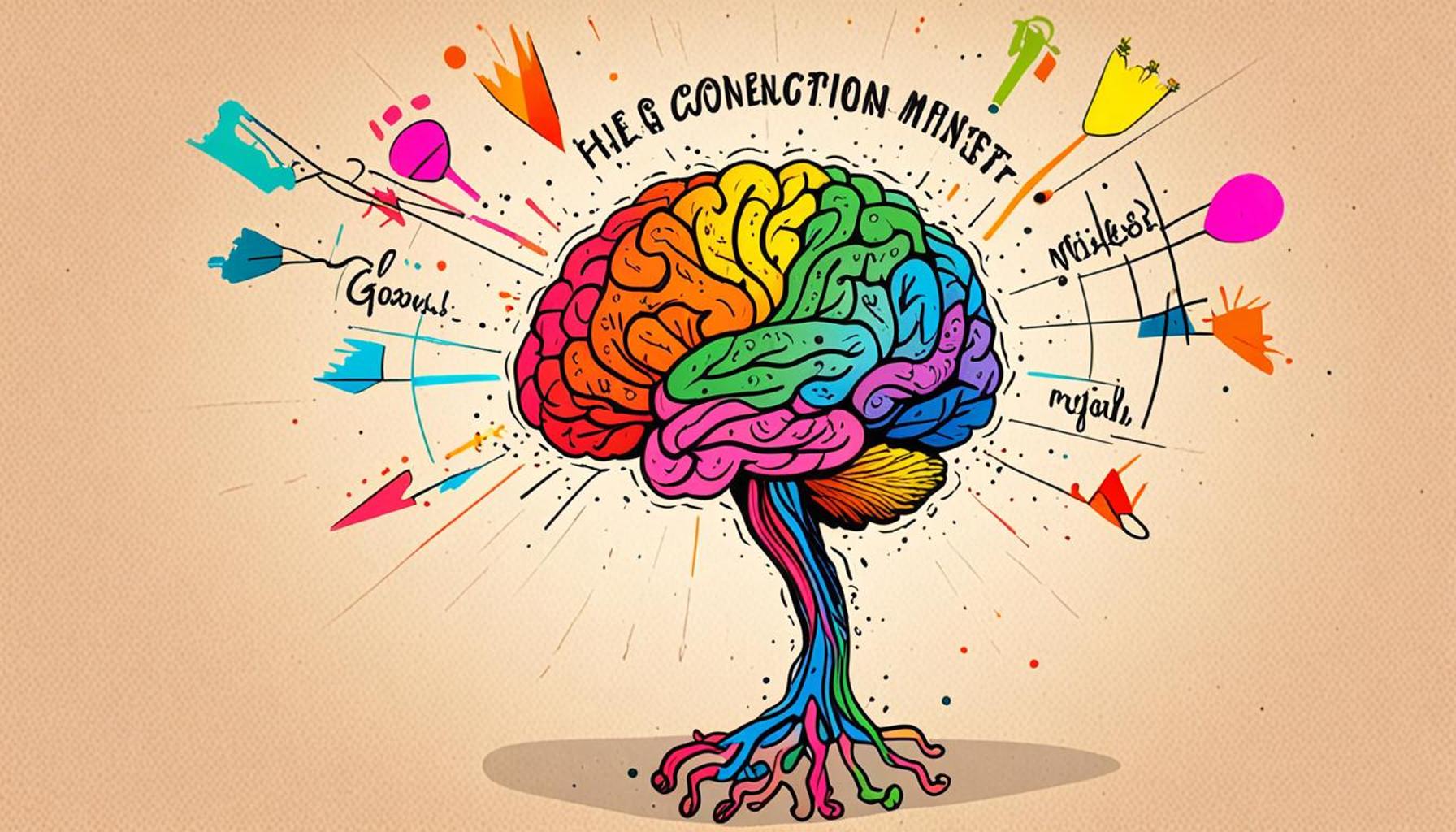Integrating the OKR Methodology in Goal Setting to Foster a Growth Mindset

Understanding OKRs: A Path to Enhanced Performance
In today’s fast-paced environment, organizations and individuals alike are constantly striving for improvement. One approach that has gained significant traction is the use of Objectives and Key Results (OKRs). This methodology fosters a mindset focused on growth and continuous learning, empowering teams to set ambitious goals. By setting clear objectives and defining measurable key results, organizations can create a roadmap for success.
Why consider integrating OKRs into your goal-setting process? Here are some compelling reasons:
- Alignment – OKRs encourage collaboration and unity, ensuring everyone is working towards shared objectives. For instance, a startup in Nigeria’s tech scene may have its developers, marketing, and sales teams align their OKRs to ensure a cohesive approach to product launching.
- Focus – They help prioritize goals, guiding efforts on what truly matters. Businesses can avoid the pitfall of spreading themselves too thin by concentrating on the most impactful objectives.
- Measurable Progress – Key results provide clear metrics to track progress, encouraging accountability. For example, a business aiming to increase sales might set key results such as “Achieve a 25% increase in monthly sales” or “Expand customer reach by 15% within a quarter.”
In a country like Nigeria, where innovation and adaptability are essential, leveraging OKRs can be transformative. Businesses—from burgeoning tech startups in Lagos to traditional enterprises in Kano—can utilize OKRs to:
- Enhance team performance by creating clarity around expectations and accountability.
- Cultivate a culture of feedback by encouraging regular check-ins and updates on progress.
- Drive impactful results in a competitive market, encouraging teams to aim high while remaining adaptable to new challenges.
Consider a Nigerian tech startup that has adopted OKRs to navigate a rapidly changing landscape. By setting quarterly objectives that include increasing user engagement and improving customer service response times, the startup can measure its success through specific key results—like user satisfaction ratings or response time metrics. This structured approach not only aids in hitting targets but also fosters a culture of ownership and accountability among team members.
As we delve deeper into how integrating the OKR methodology can nurture a growth mindset, we will explore practical applications and real-life examples that resonate with every Nigerian striving for excellence. The roadmap towards personal and organizational success using OKRs is not merely a tool; it’s a mindset that emphasizes learning, continuous improvement, and collaboration—key aspects for thriving in Nigeria’s dynamic economic landscape.

ADDITIONAL INSIGHTS: Expand your understanding here
Adopting OKRs: A Catalyst for Growth Mindset Transformation
The integration of Objectives and Key Results (OKRs) into goal setting represents more than a mere organizational strategy; it epitomizes a transformative approach that promotes a growth mindset. To fully appreciate the impact of OKRs, it is essential to understand how they facilitate learning, adaptability, and a relentless pursuit of improvement. Especially in a vibrant market like Nigeria, where innovation is not just encouraged but essential, incorporating OKRs can unlock significant potential for both individuals and organizations.
At its core, the OKR framework is designed to be agile and iterative, which aligns perfectly with the dynamics of a rapidly evolving economy. This is particularly relevant for Nigerian startups aiming to establish a foothold amidst stiff competition. The methodology emphasizes setting ambitious objectives that resonate with a company’s long-term vision while breaking them down into tangible key results that serve as metrics of success. Such clarity promotes focus and encourages teams to think beyond the status quo.
For organizations looking to implement OKRs effectively, the following steps can serve as a guiding framework:
- Define Clear Objectives – Objectives should be inspiring and clear, creating a sense of purpose for all team members. For example, a Lagos-based e-commerce platform might set an objective to “Become the leading preferred online shopping destination in Nigeria this fiscal year.”
- Establish Measurable Key Results – Key results must be specific and quantifiable to facilitate assessment. A potential key result could be, “Increase user registrations by 30%” or “Achieve a customer satisfaction score of 90% by the end of Q2.”
- Foster a Culture of Transparency – Encouraging regular updates and sharing progress openly can foster accountability and continuous feedback. Monthly check-ins, along with visual dashboards, allow teams to observe results and recalibrate their strategies.
Integrating OKRs not only aligns individual and team goals but also empowers employees to take ownership of their roles. This enhanced ownership is instrumental in nurturing a growth mindset, as team members can learn from feedback and adapt their approaches based on performance outcomes. Consider a tech company in Abuja that has adopted this framework; through consistent use of OKRs, the team may find that they foster engagement, enabling individuals to learn from challenges rather than shrink from them.
Furthermore, organizations can set the stage for a thriving growth culture by celebrating wins, even the small ones. Acknowledging progress boosts morale and inspires teams to embrace challenges, reinforcing the belief that abilities can be developed through dedication and hard work. This is particularly pertinent in sectors where technological advancement is crucial, as it helps industries like fintech or agritech in Nigeria remain resilient and inventive.
In the following sections, we will delve deeper into specific examples and case studies from Nigerian companies that have successfully harnessed the OKR methodology in their goal-setting processes. As we explore these insights, readers will gain a more profound understanding of how integrating OKRs can serve as both a roadmap and a mindset shift—encouraging continuous growth and adaptation in the face of an ever-changing business landscape.
Integrating the OKR Methodology in Goal Setting to Foster a Growth Mindset enables individuals and organizations to cultivate a culture of continuous improvement and adaptability. One of the foundational aspects of this integration is the clear alignment of objectives with measurable results. This alignment not only clarifies expectations but also empowers teams and individuals to take ownership of their goals. The beauty of OKRs lies in their ability to be flexible; they can be adjusted as circumstances evolve, fostering resilience and encouraging growth.Moreover, the collaborative nature of OKRs enhances communication within teams. When goals are openly discussed and shared, it establishes accountability and nurtures a sense of community. Each member can contribute ideas, celebrate achievements, and learn from setbacks, all of which align with the principles of a growth mindset. Teams can iterate and adapt their goals based on feedback and results, taking them beyond mere targets to a continuous cycle of learning.Additionally, the process of setting OKRs encourages reflection, which is crucial for personal and professional development. Regular check-ins on progress help individuals assess their performance, identify areas for improvement, and set new challenges in line with their growth objectives. For instance, if a team set an ambitious goal that proved unattainable, instead of viewing this as a failure, they can analyze the experience to derive insights and apply those lessons to future objectives.Ultimately, embracing the OKR framework not only drives performance but also nurtures a culture of growth, where individuals are motivated to expand their capabilities. By integrating these methodologies into regular practice, organizations can truly transform their approach to goal setting, ensuring that the quest for improvement becomes an ongoing journey rather than a destination. This understanding leads to deeper engagement and fosters an environment where innovation thrives, paving the way for sustainable success.
RECOMMENDED: Check out this similar article
Leveraging OKRs for Continuous Learning and Innovation
The strategic implementation of Objectives and Key Results (OKRs) not only underscores goal alignment but also becomes a vital tool for fostering a culture of continuous learning and innovation. In the Nigerian context, where the business landscape is often marked by volatility and rapid change, organizations can utilize OKRs to cultivate resilience and adaptability. By framing goals that encourage teams to remain open to learning, organizations are actively nurturing a growth mindset among their employees.
One of the key advantages of the OKR framework is its emphasis on iterative progress rather than just outcomes. This approach allows organizations to focus on the journey of achieving objectives. For instance, a telecom company in Nigeria might set an ambitious objective to “Reduce customer churn rate by 25%.” Rather than solely measuring success by the end result, the company can establish interim key results, such as “Implement new customer feedback systems within the first quarter” and “Conduct bi-monthly workshops to train staff on customer engagement techniques.” These steps empower employees to actively participate in the learning process, rewarding their efforts even in the face of setbacks.
Furthermore, the iterative nature of OKRs promotes experimentation. By encouraging teams to take calculated risks and providing them with the necessary support, organizations can fuel innovation. In the ever-evolving sectors like e-commerce and agriculture in Nigeria, where rapid technological advancements disrupt traditional practices, being innovative is pivotal. For example, a Nigerian agritech startup can set an objective to “Enhance food distribution efficiency” and key results that include “Pilot two new logistics technologies” or “Collaborate with local farmers to test new yield methodologies.” Such initiatives not only foster a proactive culture but also elevate the team’s ability to respond to emerging challenges effectively.
Moreover, the OKR methodology supports feedback mechanisms that further underpin a growth mindset. Regular check-ins allow teams to review their objectives and key results, facilitating a loop of constructive criticism and recognition of achievements. By implementing structured feedback sessions, organizations can encourage dialogue around obstacles faced and lessons learned. A multinational bank operating in Nigeria, for instance, might periodically assess its OKRs related to improving digital banking customer experience. Through such evaluations, the team can identify successful strategies as well as areas for improvement, thereby refining their approaches in a dynamic market.
Additionally, OKRs can bridge the gap between leadership and employees, creating a shared vision that aligns with collective growth. When leaders transparently communicate their goals and the reasons behind them, they cultivate trust and enhance commitment among employees. This has profound implications for employee morale and motivation. A notable example includes a forward-thinking Nigerian startup that engages all levels of staff in co-creating OKRs for the year. This participatory approach not only clarifies expectations but also empowers individuals to envision themselves as crucial contributors to the larger mission.
As the Nigerian business environment continues to evolve, prominently integrating OKRs into the goal-setting process can be a game-changer. Not only does this methodology inspire organizations to set ambitious targets, but it also enhances resilience and adaptability. With a strong emphasis on continuous learning and innovation, businesses can leverage OKRs to foster a growth mindset, ensuring they are well-equipped to navigate the complexities of their respective industries.
CHECK OUT: Click here to explore more
Conclusion
The integration of Objectives and Key Results (OKRs) within the goal-setting framework represents not just a method for achieving specific targets but a transformational approach to fostering a growth mindset across organizations. In a rapidly changing business landscape like Nigeria, where competition and innovation are paramount, the OKR methodology serves as a catalyst for enhancing employee engagement and resilience.
By promoting iterative progress, organizations empower their teams to view challenges as opportunities for learning rather than setbacks. This aligns seamlessly with the ethos of a growth mindset, allowing employees to embrace experimentation and recognize the value of feedback in their developmental journey. Moreover, as companies encourage participation in the co-creation of OKRs, they build a culture of transparency and trust that strengthens the connection between leadership and staff.
As Nigerian businesses increasingly prioritize agility and innovation, the adoption of OKRs can yield significant advantages. Organizations equipped with a robust OKR strategy are more likely to adapt to swift market changes and leverage collective expertise to tackle complex challenges. Adopting this methodology is not merely about setting ambitious objectives; it is an investment in cultivating a resilient workforce ready to navigate the dynamic landscape of their industries.
In conclusion, integrating the OKR methodology into goal setting is a powerful step towards nurturing a growth mindset. It enables organizations to thrive amid uncertainty and fosters a culture of continuous improvement that is essential for sustainable success in the ever-evolving Nigerian market.


